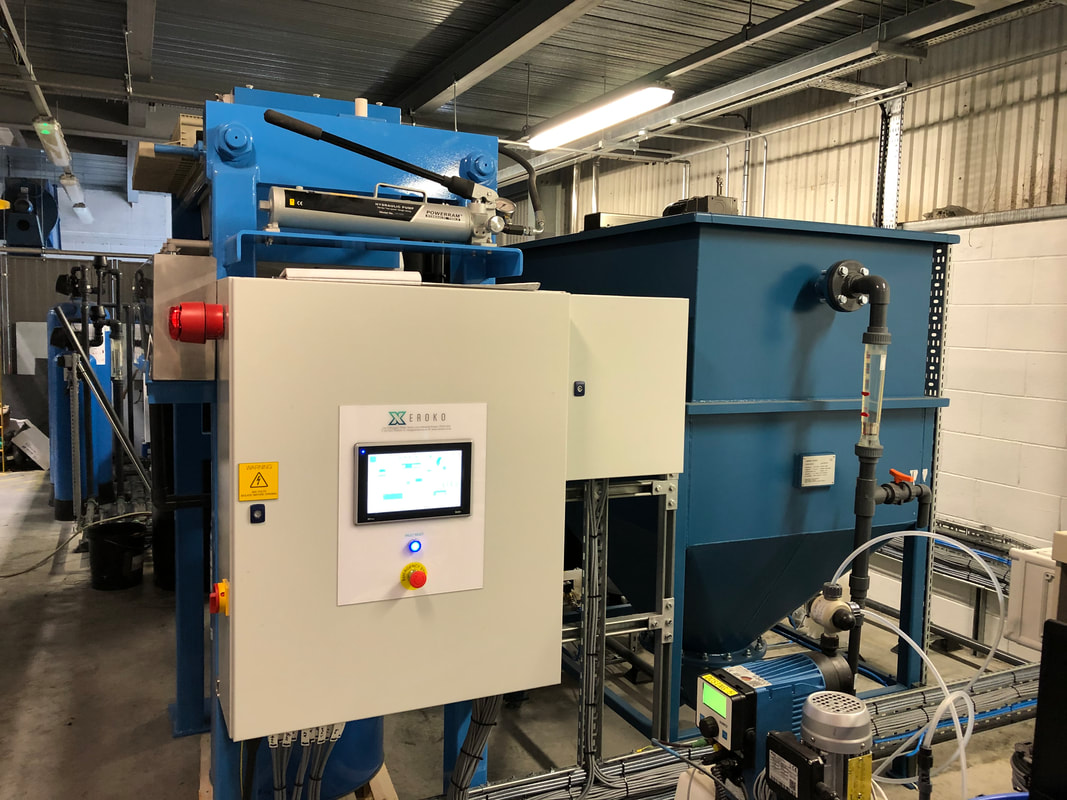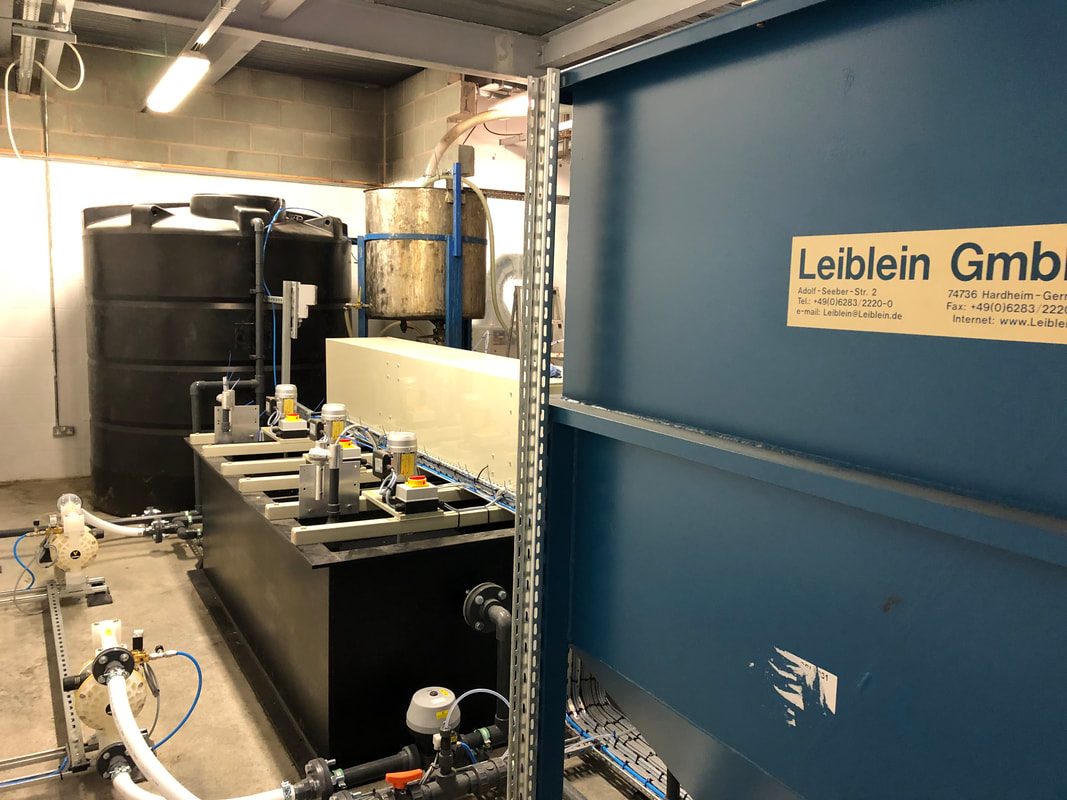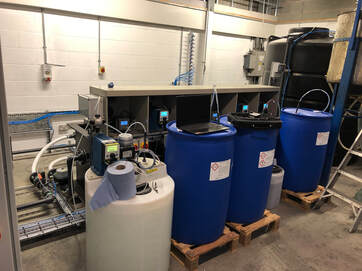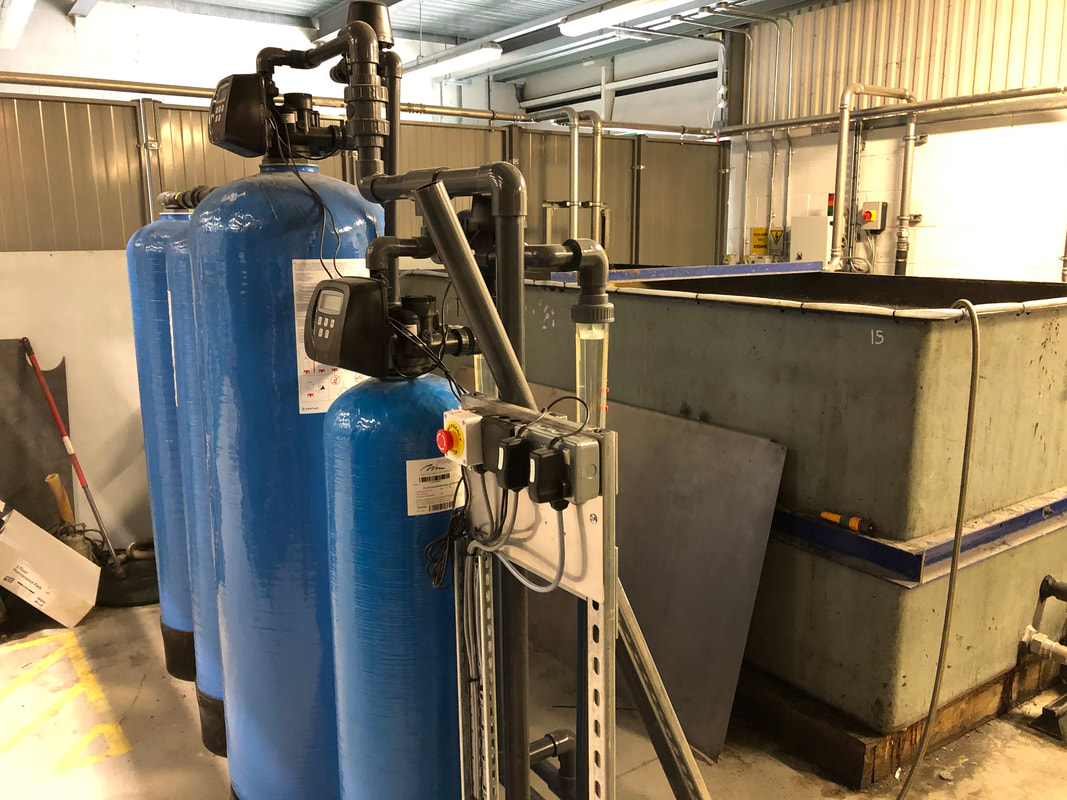industrial wastewater treatment
Our solutions in action
|
Most industrial processes use water, and many of them use significant amounts of it. Many types of factory activities such as plant cleaning, material conveying, bottling, and product washing create wastewater. For many industrial facilities, this can lead to a tremendous amount of wastewater that needs to be treated before it can be sent to a sewer system, land applied, or discharged into waterways. Wastewater from industrial processing often requires on-site treatment before it can be discharged to prevent or reduce sewer surcharge fees.
|
|
The type of industry and specific operational practices determine what types of wastewater is generated and what type of treatment is required. Reducing solids such as waste product, organic materials, and sand is often a goal of industrial wastewater treatment. Some common ways to reduce solids include primary sedimentation (clarification), Dissolved Air Flotation or (DAF), belt filtration, and screening.
Industrial wastewater processing is a critical operational factor for a broad spectrum of industries. Common to most industrial applications is the creation of wastewater. Even with the strictest water efficiency measures in place and all efforts made to recycle it, wastewater is inevitable. |
wastewater treatment systems
What they are
A wastewater treatment system is used to convert spent streams into an effluent that can either be reused or safely discharged to the environment or municipal treatment facility.
The most appropriate wastewater treatment system will help the facility avoid harming the environment, human health, and a facility’s equipment, process or products (especially if the wastewater is being reused). It will also help the facility curb heavy fines and possible legal action if wastewater is being improperly discharged to either the environment or publicly owned treatment works. The relative complexity of a wastewater treatment system will depend heavily upon the compliance regulations impacting your plant and the composition of your waste stream.
A wastewater treatment system is used to convert spent streams into an effluent that can either be reused or safely discharged to the environment or municipal treatment facility.
The most appropriate wastewater treatment system will help the facility avoid harming the environment, human health, and a facility’s equipment, process or products (especially if the wastewater is being reused). It will also help the facility curb heavy fines and possible legal action if wastewater is being improperly discharged to either the environment or publicly owned treatment works. The relative complexity of a wastewater treatment system will depend heavily upon the compliance regulations impacting your plant and the composition of your waste stream.
While the contaminants present in a waste stream can vary greatly from one process to the next, wastewater treatment systems commonly treat for biochemical oxygen demand (BOD), nitrates, phosphates, pathogens, metals, TSS, TDS, and synthetic chemicals.
|
How they work
While a wastewater treatment train will vary considerably from one installation to the next depending upon discharge regulations, stream constituents, flow reuse strategies, and other factors, these steps represent some of the more common technologies you might expect to see: Clarification - The first step of wastewater treatment is often clarification, which is a multistep process used to precipitate metals, silica, remove suspended solids from solution. Depending on the characterisation of the wastewater, clarification can be a series of reaction tanks with chemical addition, coagulation, flocculation, sedimentation, followed by filtration. These steps are usually necessary for the removal of any fine particulates and/or by-products, some of which can be recovered if they are of value (such as silver or other materials). Disinfection - Pathogens—bacteria, viruses, fungi, or any other microorganisms that can be present in wastewater—can lead to all kinds of health issues, including acute sickness, severe digestive problems, or death. When industrial wastewater contains these harmful pathogens and is released into the environment, it can spread illness and disease, making their removal or neutralization a key aspect of treatment. |
Softening - For streams with high hardness or sulfates, a lime softening step may be added to reduce mineral or sulfate content. The process involves the application of lime or lime soda to raise the pH of the stream, which in turn encourages mineral constituents to precipitate out of solution. In some cases, IX or membrane softening may also be used.
Special processes - There are also specialized process steps to treat unique wastewater issues, such as the removal of certain metals or organics or to reduce TDS for recycling, among other examples. Since wastewater streams are typically complex and highly variable from one facility to the next, special processes are often required to fully meet wastewater treatment needs. Distribution - Following wastewater treatment, the water is routed for reuse within the facility or, complying with local regulations, discharged to the environment or local sewer. Additionally, because wastewater treatment is almost always subject to fluctuations in composition, flow rate, or effluent requirements, a well-designed system should accommodate such fluctuations and offer options for scalability. |
Whether municipal or industrial, GPC Clear Solutions understands your challenges and recognises the opportunities of creating sustainable solutions for wastewater treatment.
With over 30 years experience in the wastewater industry, we are committed to providing our customers with the technical support they need, no task is too much and we are here to help.
By using our high-quality products and services, we aim to help you save money by cutting your effluent treatment costs up to 50%.
We cover a wide range of industries which include the food industry, mineral processing, gully waste treatment, Plus many more…
GPC Clear Solutions Limited is a major supplier of the highest quality chemicals for industrial wastewater treatment and sludge de-watering within the UK.
We are one of the best industrial wastewater treatment chemical suppliers in the UK
With over 30 years experience in the wastewater industry, we are committed to providing our customers with the technical support they need, no task is too much and we are here to help.
By using our high-quality products and services, we aim to help you save money by cutting your effluent treatment costs up to 50%.
We cover a wide range of industries which include the food industry, mineral processing, gully waste treatment, Plus many more…
GPC Clear Solutions Limited is a major supplier of the highest quality chemicals for industrial wastewater treatment and sludge de-watering within the UK.
We are one of the best industrial wastewater treatment chemical suppliers in the UK






